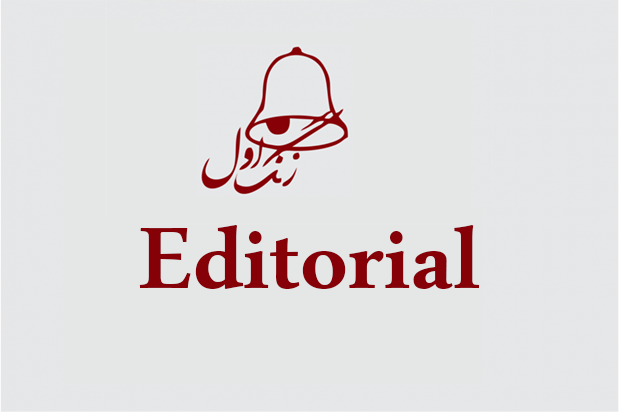Efforts to form a “High Council of State” have entered their final stages. These efforts followed pressure from US officials and the agreement reached between Ghani and Abdullah. The list of candidates for membership in this council has not been finalized yet. This is the only point of contention that talks are underway to resolve.
The High Council of State will be formed on the basis of the political agreement of May 17, 2020. According to the agreement, the purpose of forming the High Council of State is to create a “political consensus.” Its job is to advise the president on matters of “national importance.” The agreement stipulates that members of the High Council of State are appointed from among “political leaders” and “national figures.” These leaders and personalities, however, have not been identified. In any case, in the election of the members of the Council, the agreement of the two parties to the agreement is a condition.
The efforts of Ghani and Abdullah to form the High Council of State are to be supported. Although these efforts have started with a delay of almost a year, the efforts of both sides are expected to bear fruit in the near future.
The purpose of forming this Council in the political agreement of May 17 is quite clear. This Council should be a reflection of all political groups and currents and a stabilizing factor in the country. Otherwise, the “political consensus” it seeks will not be achieved. Therefore, its “political leaders” and “national figures” must represent all sections of Afghanistan’s pluralistic society.
It is suggested that the special work of the High Council of State be reconsidered. In the above political agreement, the special function of this institution is to advise the president on “important national issues”. Beyond consulting, nothing is defined in the council’s jurisdiction. This authority does not seem to be enough for the High Council of State, which is the manifestation of the will of all political currents and groups. A council with this capacity should also be empowered to make decisions. Its decisions must also be enforceable. Otherwise, the consultations of this Council will not be taken seriously and may be forgotten.
The formation of a High Council of State with dual powers of consultation and decision-making is a serious necessity in a situation where the peace process is at a standstill and is in danger of collapsing with the escalation of violence. This necessity is especially felt because the current government has not been formed on the basis of public opinion as a result of a transparent election, and parts of the Constitution have been suspended as required by the May 17 Agreement. In such circumstances, the only way to safely transport the wrecked ship of Afghanistan to the shore of salvation is through political consensus. This consensus, however, will be reached when the High Council of State can make decisions in addition to consulting.
Unfortunately, Afghanistan has failed the test of democracy over the last twenty years. During this period, all elections have been marred by fraud. As a result, elections have led to political instability instead of contributing to political stability due to mismanagement, technical problems, and fraud. None of the governments formed in the country following the last two presidential elections had the necessary legal legitimacy. The political legitimacy of these governments has been secured only by concluding an agreement between the claimants of victory in these elections. The political legitimacy of the current Participatory Government depends only on the full implementation of the May 17 Agreement. One of the articles of the agreement is the formation of the High Council of State, which, fortunately, is being worked on.
Given the special situation of the current government, it is better for the High Council of State to be formed flawlessly. This Council should also be the only competent authority in major national decisions and take the game of war and peace out of the hands of only two parties in power. Unfortunately, the record of the Presidential Palace (Ghani) and High Council for National Reconciliation (Abdullah) during the past year in the discussion of war and peace is not very defensible. The leaders of the two institutions have been in constant conflict with each other due to different interests and political tastes, and have not been able to reach an agreement. That is why the peace plans of Ghani and Abdullah are different and their desired future is not the same. The formation of the High Council of State in such a situation has become a necessity. However, the High Council of State will succeed in carrying out its mission when it has the decision-making authority and the implementation of those decisions becomes part of the government’s duties. Otherwise, it is better that the Council is not formed at all.












